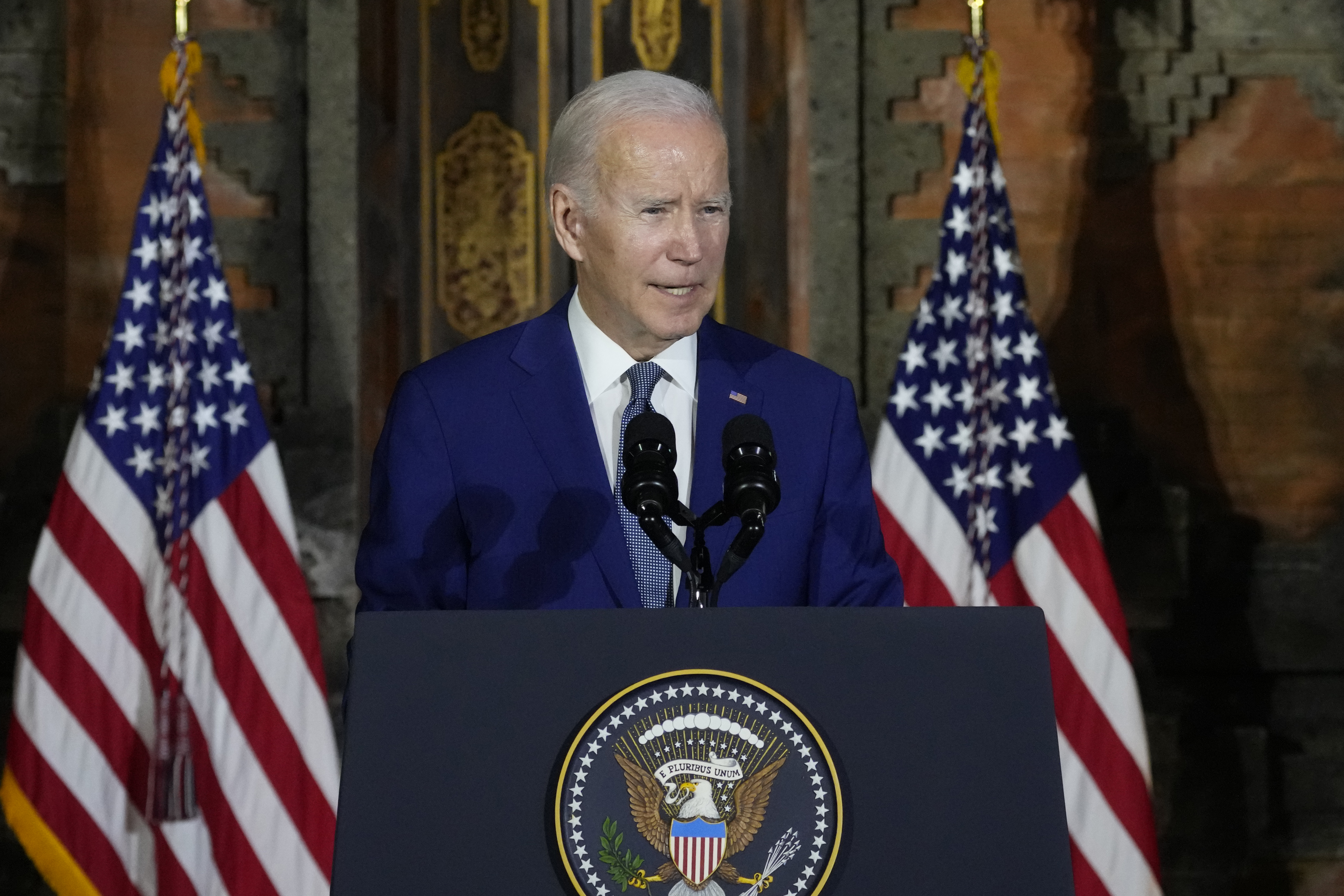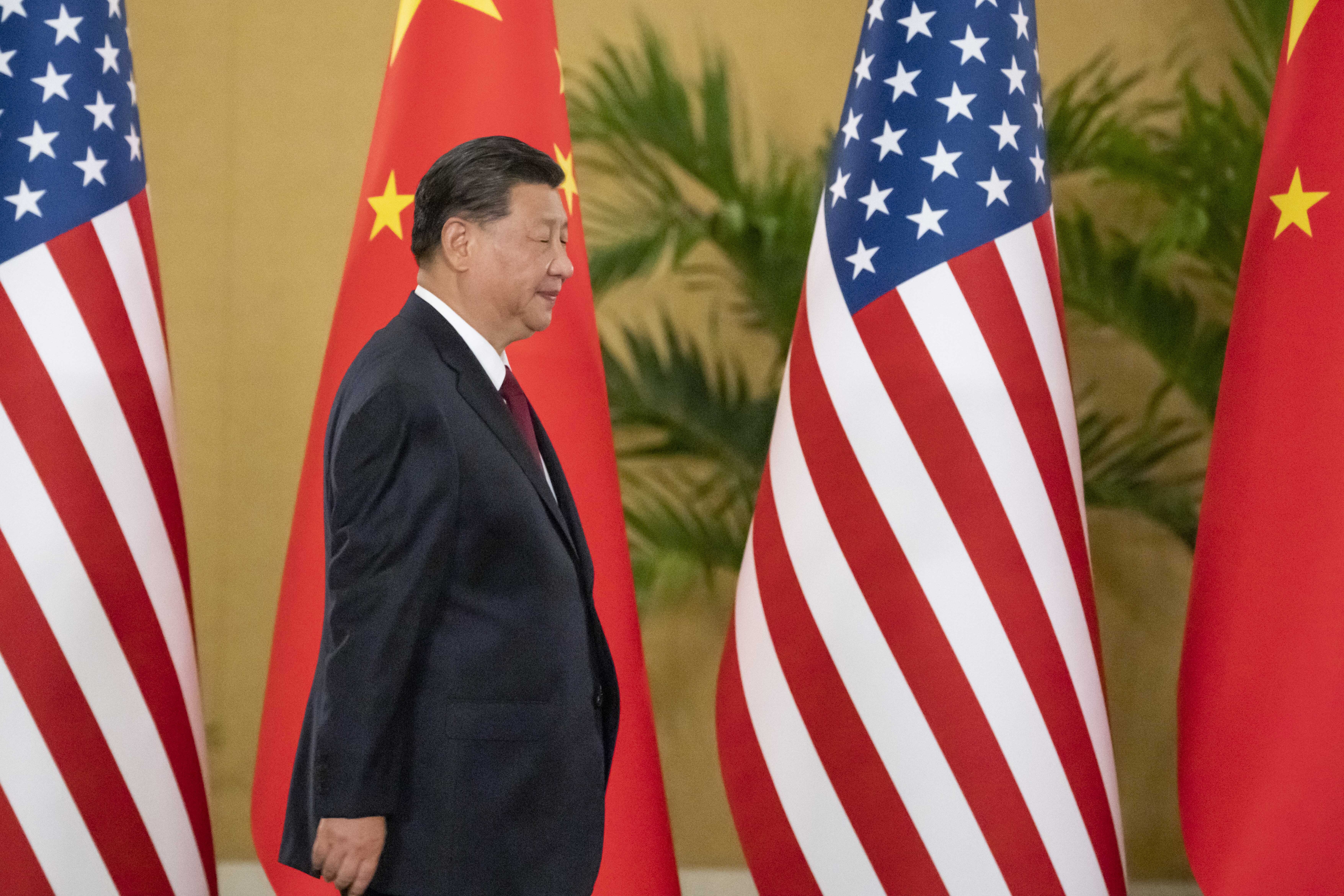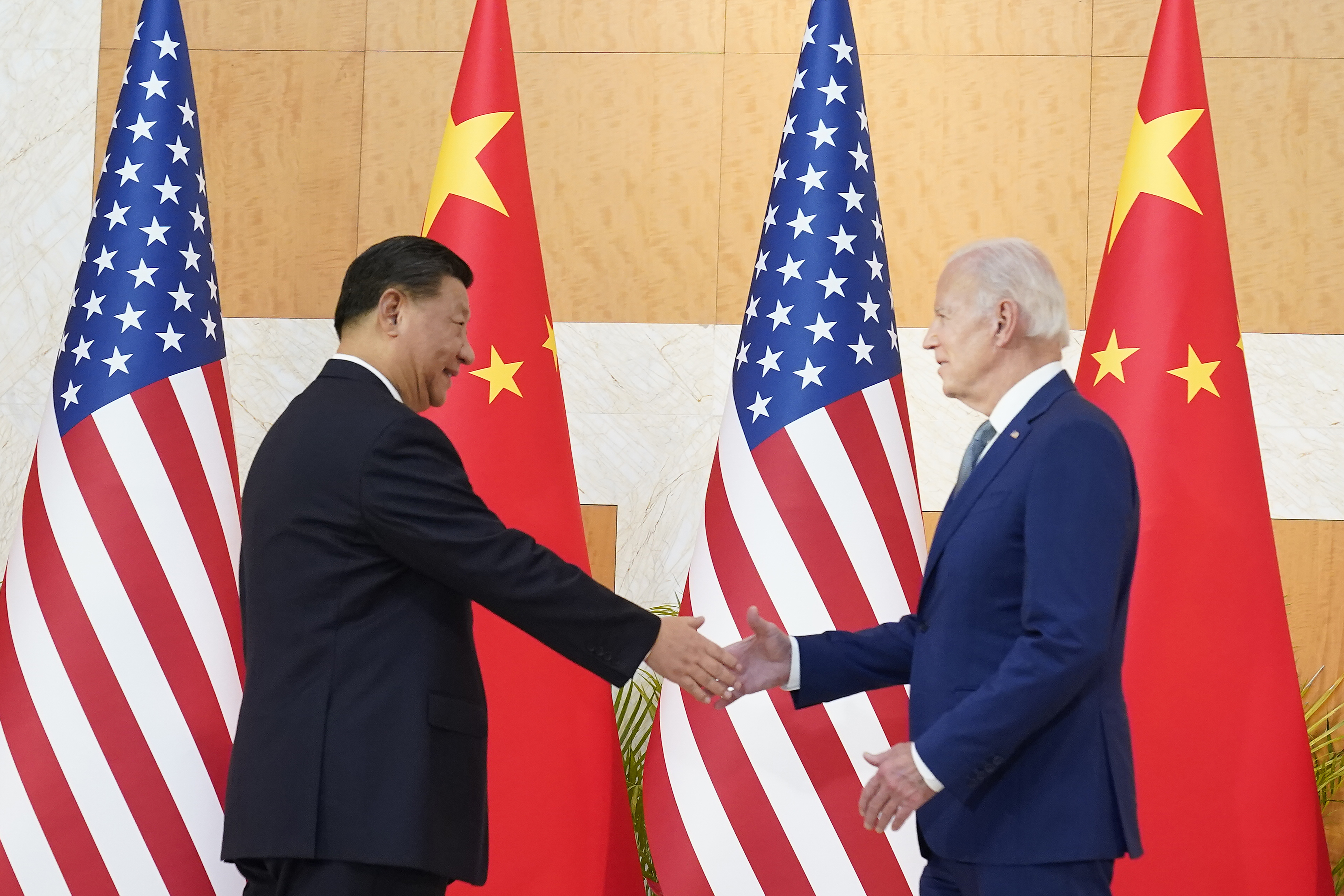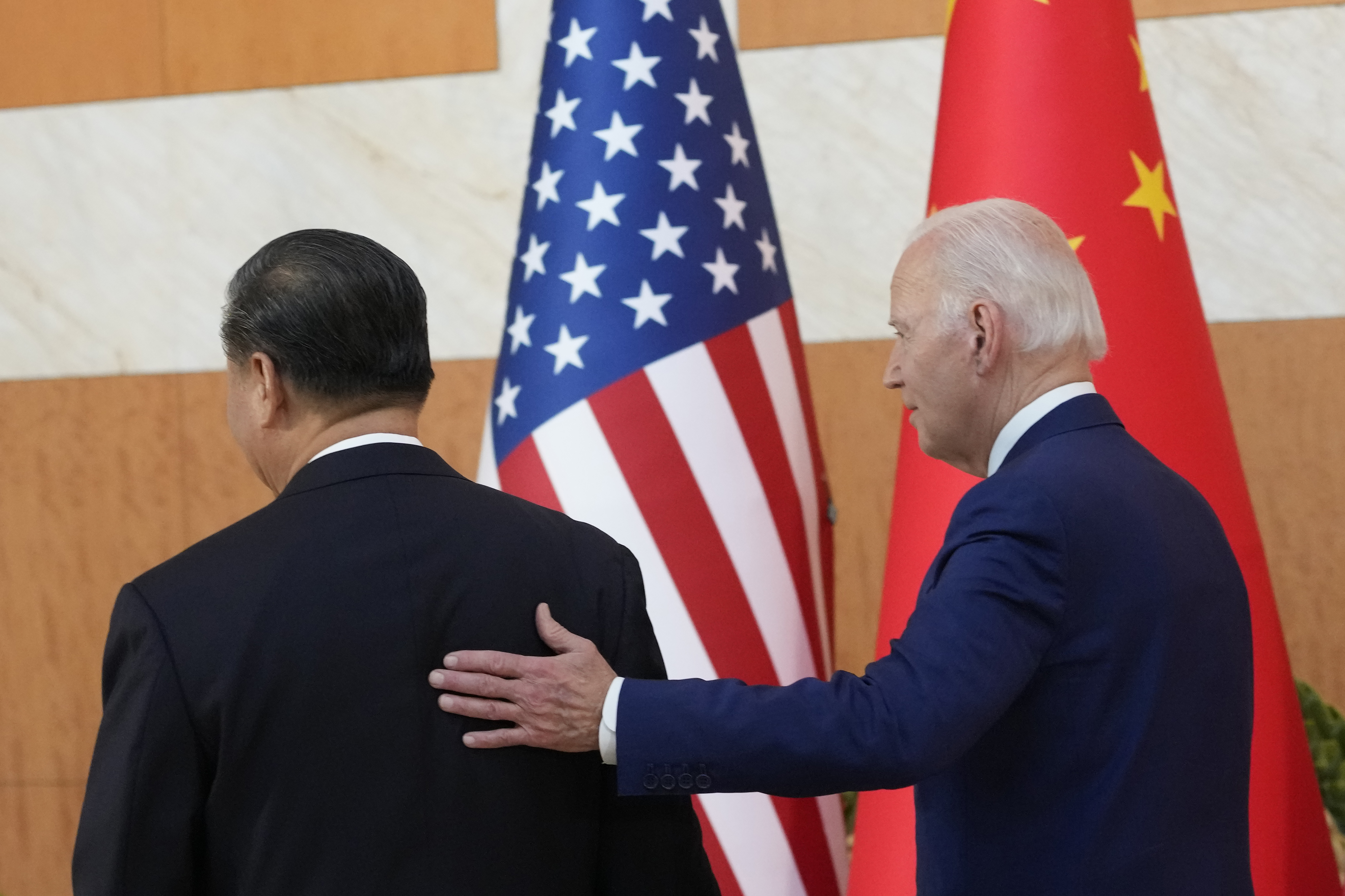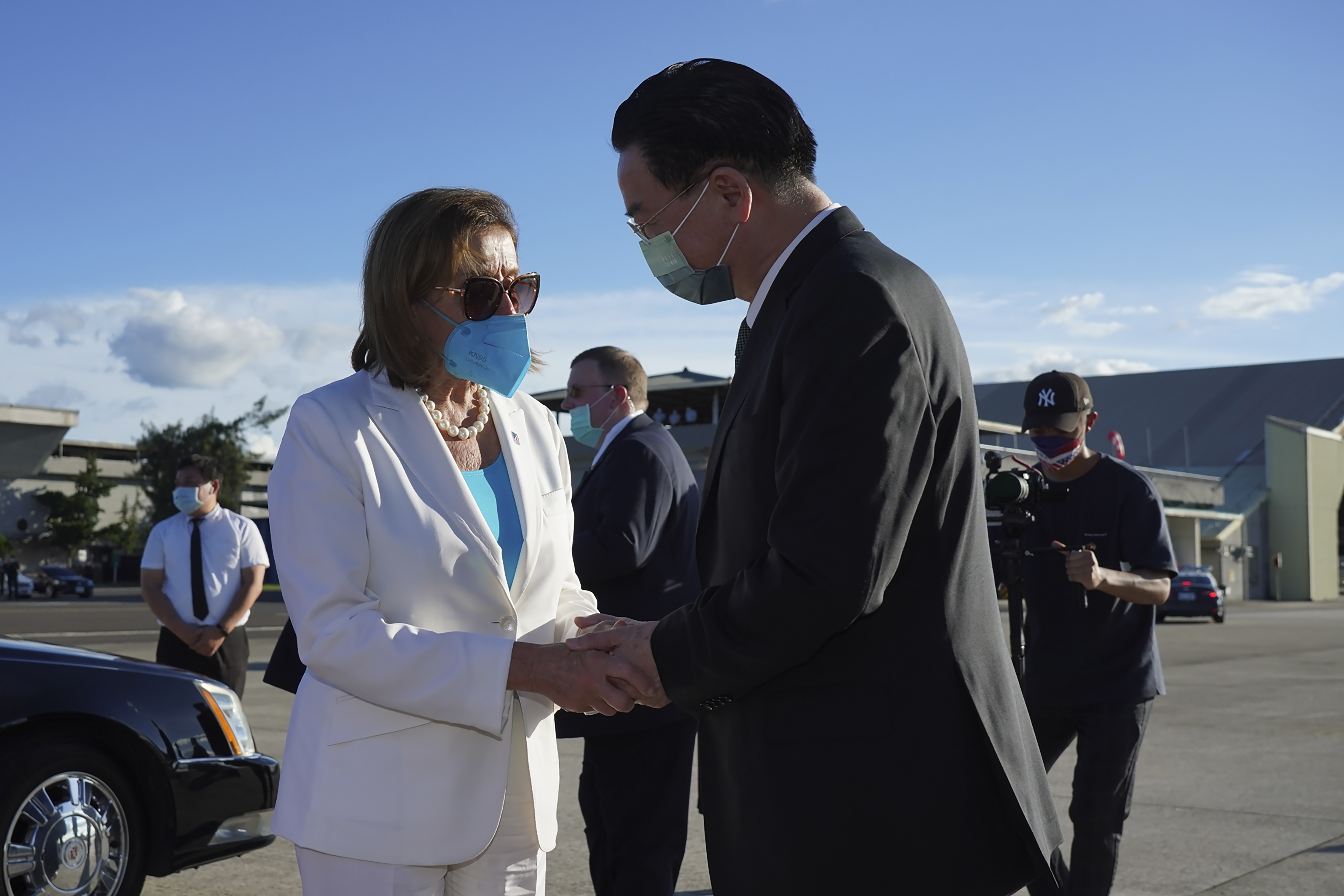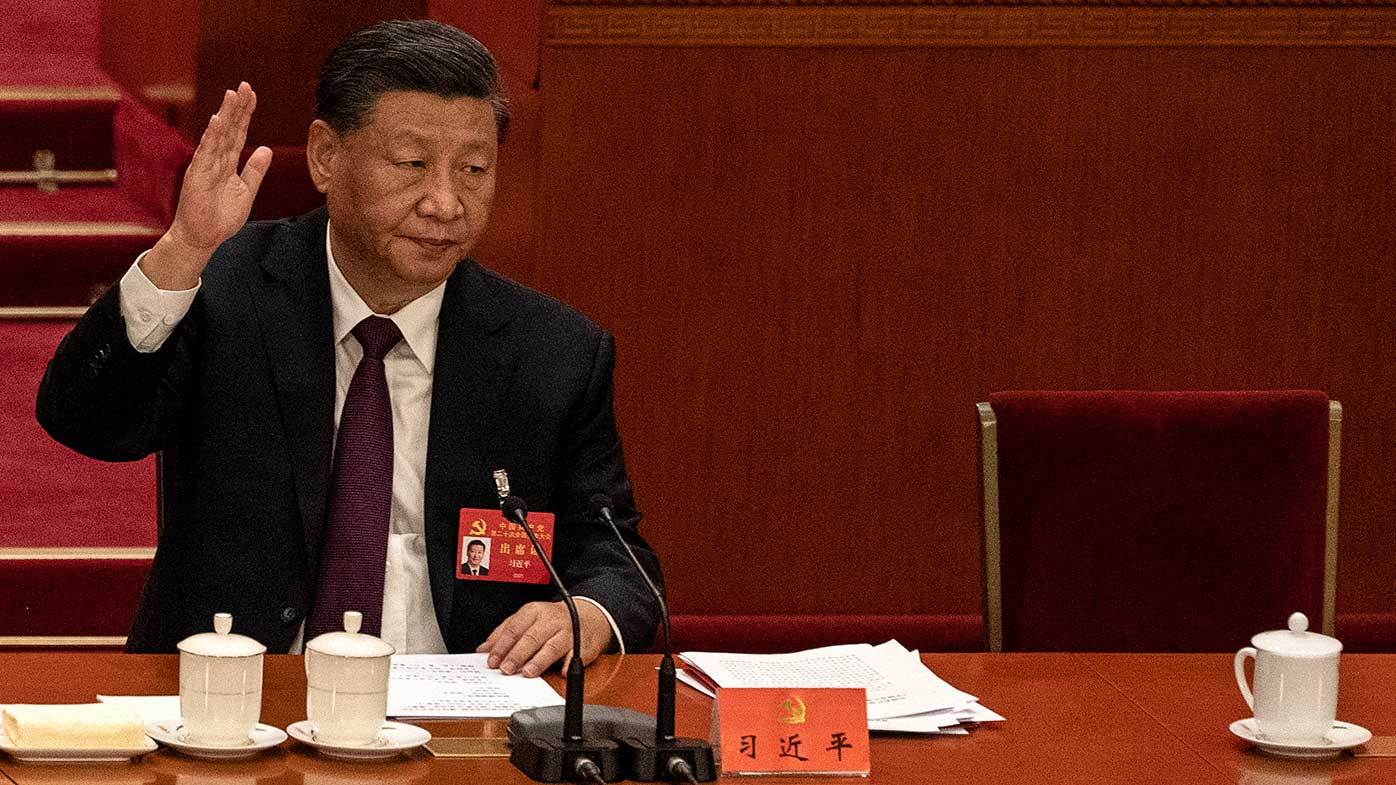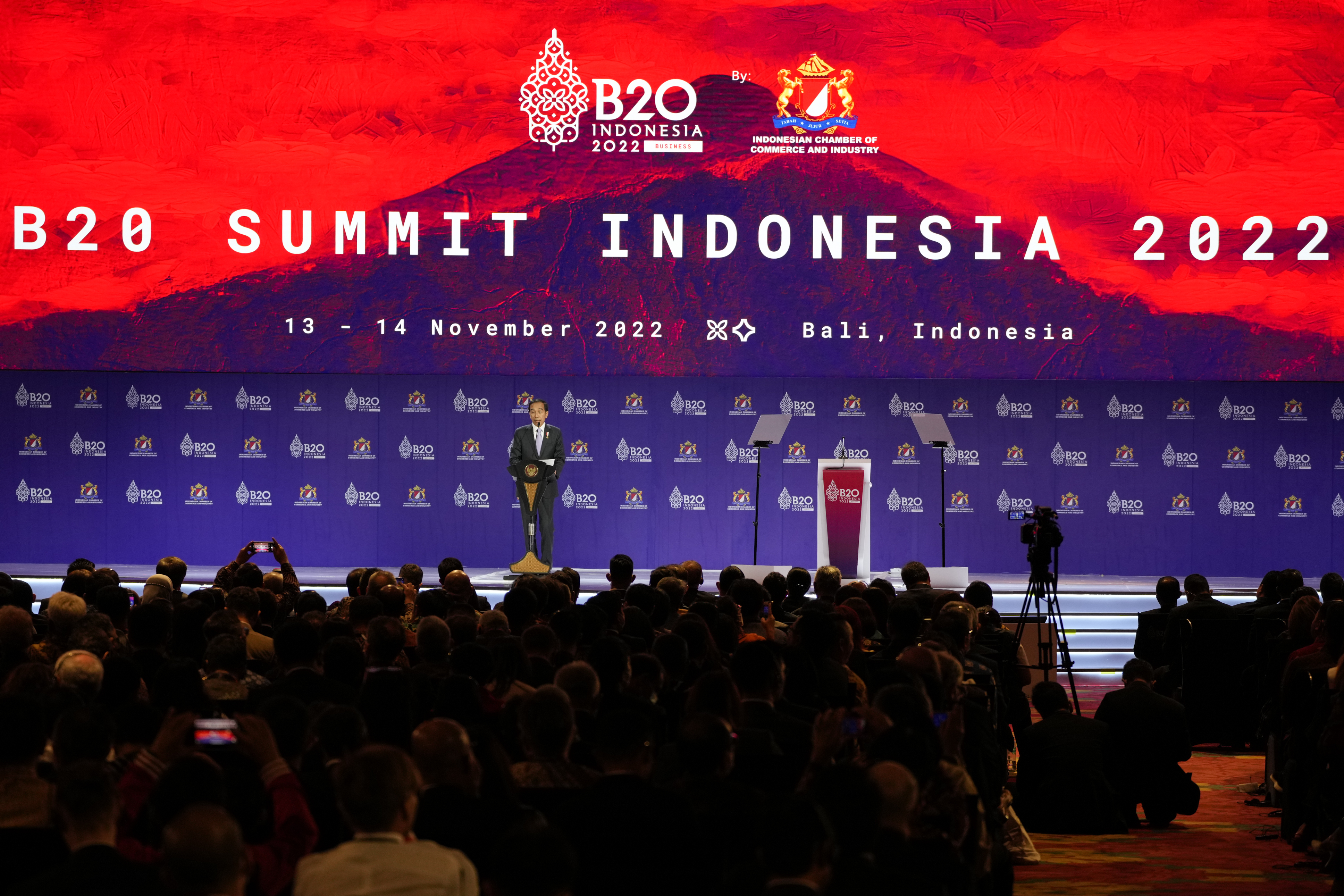US President Joe Biden has objected to China's "coercive and increasingly aggressive actions" toward Taiwan, the White House says.
His office said Biden also raised human rights concerns about Beijing's conduct in Xinjiang, Tibet, and Hong Kong during his first in-person meeting with Chinese President Xi Jinping since taking office.
The Monday meeting, in the midst of Biden's seven-day, round-the-world trip, came as the superpowers aimed to "manage" differences between them as they compete for global influence amid increasing economic and security tensions.
READ MORE: Billionaire Jeff Bezos says he will give most of his money to charity
Speaking at a news conference after concluding the nearly three hour sit-down, Biden said that when it comes to China the US would "compete vigorously, but I'm not looking for conflict", adding that, "I absolutely believe there need not be a new Cold War" with the rising Asian nation.
Biden reiterated US support for its longstanding "One China" policy, which recognises the government in Beijing while allowing for informal relations and defence ties with Taipei, and its posture of "strategic ambiguity" over whether it would respond militarily if the island were attacked.
He also said that despite China's recent saber rattling, he does not believe "there's any imminent attempt on the part of China to invade Taiwan"
"It never has to come to that," Biden added.
Xi, according to the Chinese government's account of the meeting, "stressed that the Taiwan question is at the very core of China's core interests, the bedrock of the political foundation of China-US relations, and the first red line that must not be crossed in China-US relations."
Biden said he and Xi discussed Russia's aggression against Ukraine" and "reaffirmed our shared belief in the threat or the use of nuclear weapons is totally unacceptable".
That was a reference to Moscow's thinly-veiled threats to use atomic weapons as its nearly nine-month invasion of Ukraine has faltered.
Biden and Xi also agreed to "empower key senior officials" on areas of potential cooperation, including tacking climate change, and maintaining global financial, health and food stability.
It was not immediately clear whether that meant China would agree to restart climate change talks that Beijing had paused in protest of House Speaker Nancy Pelosi's visit to Taiwan in August. The two leaders agreed to have US Secretary of State Antony Blinken travel to Beijing to continue the discussions.
Xi and Biden greeted each other with a handshake at a luxury resort hotel in Indonesia, where they are attending the Group of 20 summit of large economies, before they sat down for what was expected to be a conversation lasting several hours.
READ MORE: Prime Minister Anthony Albanese confirms meeting with China President Xi Jinping at G20 summit
"As the leaders of our two nations, we share responsibility, in my view, to show that China and the United States can manage our differences, prevent competition from becoming anything ever near conflict, and to find ways to work together on urgent global issues that require our mutual cooperation," Biden said to open the meeting.
Xi said he hoped they would "chart the right course for the China-US relationship" and that he was prepared for a "candid and in-depth exchange of views" with Biden.
Both men entered the highly anticipated meeting with bolstered political standing at home.
Democrats triumphantly held onto control of the US Senate, with a chance to boost their ranks by one in a runoff election in Georgia next month, while Xi was awarded a third five-year term in October by the Communist Party's national congress, a break with tradition.
"We have very little misunderstanding," Biden told reporters in Phnom Penh, Cambodia on Sunday, where he participated in a gathering of South-East Asian nations before leaving for Indonesia.
"We just got to figure out where the red lines are and … what are the most important things to each of us going into the next two years."
READ MORE: Shocking footage reveals moments after Adelaide shark attack
Biden added: "His circumstance has changed, to state the obvious, at home." The president said of his own situation: "I know I'm coming in stronger."
White House aides have repeatedly sought to play down any notion of conflict between the two nations and have emphasised that they believe the two countries can work in tandem on shared challenges such as climate change and health security.
But relations between the US and China have grown more strained under successive American administrations, as economic, trade, human rights and security differences have come to the fore.
As president, Biden has repeatedly taken China to task for human rights abuses against the Uyghur people and other ethnic minorities, crackdowns on democracy activists in Hong Kong, coercive trade practices, military provocations against self-ruled Taiwan and differences over Russia's prosecution of its war against Ukraine.
READ MORE: Dozens of people and pets rescued from surging floodwaters in NSW Central West
Chinese officials have largely refrained from public criticism of Russia's war, although Beijing has avoided direct support, such as supplying arms.
The White House said Biden specifically mentioned US concerns about China's actions in Xinjiang, Tibet, and Hong Kong, and the plight of Americans it considers "wrongfully detained" or subject to exit bans in China.
Taiwan has emerged as one of the most contentious issues between Washington and Beijing.
Multiple times in his presidency, Biden has said the US would defend the island — which China has eyed for eventual unification — in case of a Beijing-led invasion.
But administration officials have stressed each time that the US's "One China" policy has not changed. That policy recognises the government in Beijing while allowing for informal relations and defence ties with Taipei, and its posture of "strategic ambiguity" over whether it would respond militarily if the island were attacked.
Tensions flared even higher when House Speaker Nancy Pelosi, Democrat of California, visited Taiwan in August, prompting China to retaliate with military drills and the firing of ballistic missiles into nearby waters.
READ MORE: Health authorities recommend return to masks in South Australia
The White House said Biden "raised US objections to the PRC's coercive and increasingly aggressive actions toward Taiwan, which undermine peace and stability across the Taiwan Strait and in the broader region, and jeopardise global prosperity."
In the meeting, Biden said China's economic practices "harm American workers and families, and workers and families around the world," the White House said.
It came just weeks after the Biden administration blocked exports of advanced computer chips to China — a national security move that bolsters U.S. competition against Beijing.
Xi's government said he condemned such moves.
"Starting a trade war or a technology war, building walls and barriers, and pushing for decoupling and severing supply chains run counter to the principles of market economy and undermine international trade rules," he said.
Though the two men had held five phone or video calls during Biden's presidency, White House officials said those encounters were no substitute for Biden being able to meet Xi in person.
That task is all the more important after Xi strengthened his grip on power through the party congress, as lower-level Chinese officials have been unable or unwilling to speak for their leader.
White House officials and their Chinese counterparts spent weeks negotiating details of the meeting, which was held at Xi's hotel with translators providing simultaneous interpretation through headsets.
US officials were eager to see how Xi approached the Biden sit-down after consolidating his position as the unquestioned leader of the state, saying they would wait to assess whether that made him more or less likely to seek out areas of cooperation with the US.
"I didn't find him more confrontational or more conciliatory," Biden said.
"I found him the way he's always been, direct and straightforward."
Each leader was flanked by nine N-95 mask-wearing aides, and in the case of Xi, at least one official newly elevated in the recent Congress to its top leadership.
US officials said the interaction with top Xi aides could lead to more substantive engagements down the line.
Xi has stayed close to home throughout the global COVID-19 pandemic, where he has enforced a "zero-COVID" policy with mass lockdowns that have roiled global supply chains.
He made his first trip outside China since start of the pandemic in September with a stop in Kazakhstan and then onto Uzbekistan to participate in the eight-nation Shanghai Cooperation Organisation with Putin and other leaders of the Central Asian security group.
Before meeting with Xi, Biden held talks with Indonesian President Joko Widodo, the G20 host, to announce a range of new development initiatives for the archipelago nation, including investments in climate, security, and education.
Many of Biden's conversations and engagements during a three-country tour — which took him to Egypt and Cambodia before he landed on the island of Bali on Sunday — were, by design, preparing him for the meeting with Xi and sending a signal that the US would compete in areas where Xi has also worked to expand his country's influence.
The two men have a history that dates to their service as their country's vice president. The US president has emphasised that he knows Xi well and wants to use the meeting to better understand where they stand.
Biden had tucked references to his conversations with Xi into his remarks as he travelled around the US before the midterm elections, using the Chinese leader's preference for autocratic governance to make his own case to voters for why democracy should prevail.
The president's view was somewhat validated on the global stage, as White House aides said several world leaders approached Biden during his time in Cambodia — where he was meeting with Asian allies to reassure them of the US commitment to the region in the face of China's assertive actions — to tell him they watched the outcome of the midterm elections closely and that the results were a triumph for democracy.
Source: 9News

